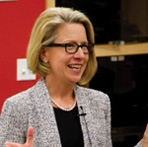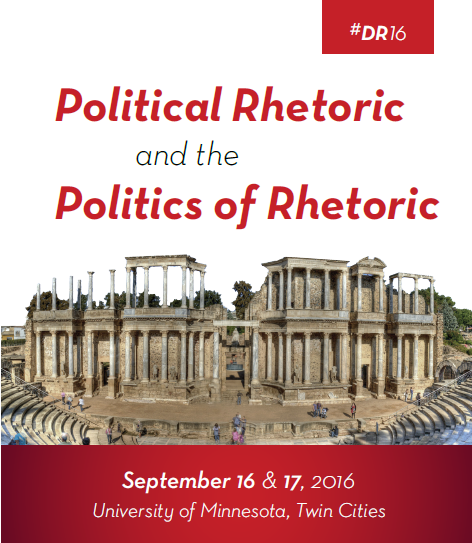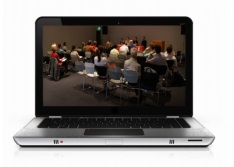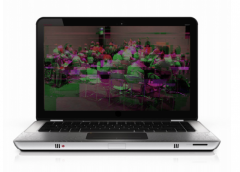Preview:
- A new hub for communication conferences.
- Ph.D. public defense presentations this month from Raechel Tiffe and Melody Lynn Hoffmann.
- Upcoming conference deadlines: RSA and GPACW.
Conference Central
 Check out our new page titled “Conference Hub” here. This page displays essential information about all the conferences that might be of interest to us. Keeping up to date, planning your academic year, and never missing a deadline just became a lot easier. With your help this page can become the go-to place for scheduling our graduate lives.
Check out our new page titled “Conference Hub” here. This page displays essential information about all the conferences that might be of interest to us. Keeping up to date, planning your academic year, and never missing a deadline just became a lot easier. With your help this page can become the go-to place for scheduling our graduate lives.
Communication Studies, Ph.D. Public Defense “Series”
Raechel Tiffe, “Towards a Queerer Labor Movement: The Politics and Potential of LGBT-Labor Coalition.” Adviser: Gilbert Rodman.
May 20 2013 – Ford Hall 151 – 2:00-4:00.
 Towards a Queerer Labor Movement: The Politics and Potential of LGBT-Labor Coalition examines the relationship between the contemporary US labor movement and LGBT workers. Through an investigation of the ways in which minoritized subjects resist injustice in our contemporary neoliberal climate, I provide a new theory social movement building. Using a combination of media analysis, ethnography, and participatory action research, I argue that the union movement is an ideal place from which to struggle for LGBT justice—through and alongside the struggle for racial and economic justice. Further, given the weakened state of organized labor in the US, I contend that labor’s explicit inclusion of and attention to LGBT workers will also strengthen the union movement. In many ways, the labor movement is already doing this important work, and LGBT and labor communities are benefiting from the shift toward what some scholars and activists describe as social movement unionism. Rather than approaching oppression and discrimination through a single-issue lens, union members and leaders have developed campaigns, trainings, and strategies that acknowledge how the struggles faced by LGBT workers are connected to the struggles faced by the working-class more generally. More than just suggesting that these issues are interrelated, the coalitions I discuss have worked to point out that these positionalities are not mutually exclusive—unlike the mainstream gay rights movement, LGBT-union efforts center the fact that not all LGBT people are wealthy and white. However, there are still ways in which some facets of organized labor fail as a vehicle for social change, and through this critique, I argue that a truly liberatory social movement unionism could be possible with the guidance of radical militancy and critical queer politics.
Towards a Queerer Labor Movement: The Politics and Potential of LGBT-Labor Coalition examines the relationship between the contemporary US labor movement and LGBT workers. Through an investigation of the ways in which minoritized subjects resist injustice in our contemporary neoliberal climate, I provide a new theory social movement building. Using a combination of media analysis, ethnography, and participatory action research, I argue that the union movement is an ideal place from which to struggle for LGBT justice—through and alongside the struggle for racial and economic justice. Further, given the weakened state of organized labor in the US, I contend that labor’s explicit inclusion of and attention to LGBT workers will also strengthen the union movement. In many ways, the labor movement is already doing this important work, and LGBT and labor communities are benefiting from the shift toward what some scholars and activists describe as social movement unionism. Rather than approaching oppression and discrimination through a single-issue lens, union members and leaders have developed campaigns, trainings, and strategies that acknowledge how the struggles faced by LGBT workers are connected to the struggles faced by the working-class more generally. More than just suggesting that these issues are interrelated, the coalitions I discuss have worked to point out that these positionalities are not mutually exclusive—unlike the mainstream gay rights movement, LGBT-union efforts center the fact that not all LGBT people are wealthy and white. However, there are still ways in which some facets of organized labor fail as a vehicle for social change, and through this critique, I argue that a truly liberatory social movement unionism could be possible with the guidance of radical militancy and critical queer politics.
Melody Lynn Hoffmann, “Our Bikes in the Middle of the Street: Community-building, Racism and Gentrification in Urban Bicycle Advocacy.” Adviser: Dr. Mary D. Vavrus
May 29th Ford Hall 151, 1-3 p.m.

In this dissertation, I complicate the many iterations of bicycle advocacy in U.S. cities by arguing that the bicycle is a “rolling signifier”—in other words, the bicycle means very different things to different people. Cities across the country are becoming more committed to making their spaces welcoming to bicyclists which include bicycling events, bicycle lanes, and businesses that cater to cyclists, but this welcoming is also met with anger and resentment by some community members. In this dissertation I ultimately argue that the “rolling signification” of the bicycle contributes to its ability to build community, influence gentrifying urban planning, and reify systemic race and class barriers. The importance of a neighborhood’s history as it intersects with bicycle advocacy is made clear through my case studies in Milwaukee, Wisconsin, Portland, Oregon, and Minneapolis as neighbors both build community and erupt into heated fights about who is hailed in bicycle culture. I also highlight a shift in bicycle advocacy as it leaves its radical, counterculture roots and begins to be taken up by city governments for marketing and recruitment purposes. This dissertation intervenes in Communication Studies scholarship by highlighting the importance of rich description, spatial analysis, and ethnography when studying communities. I also build upon cultural bicycle scholarship by presenting intersectional research, making race and class the forefront points of inquiry throughout the case studies.
Upcoming Conferences
RSA “Border Rhetorics”
16th Biennial Rhetoric Society of America Conference in an Antonio, Texas
Deadline for submissions: July 1, 2013.
“Border Rhetorics” not only invites consideration of these kinds of geographic, political and cultural borders but also invites consideration of a wider range of borders: the borders between identities, between roles, between disciplines, between concepts, etc. The 2014 conference theme seeks to spur a broad conversation about the borders that unite and divide us, the ways in which these borders are constructed and deconstructed, confirmed and contested.
All submissions must be submitted through the electronic submission platform available here.
Full CFP here.
“Beyond Computers and Writing”
17th annual Great Plains Alliance for Computers and Writing

Deadline: Midnight Monday, August 12, 2013
The Department of Writing Studies is hosting the 17th annual Great Plains Alliance for Computers and Writing, Friday, November 8, 2013 at the Continuing Education Conference Center on St. Paul campus.
As the personal computer era wanes and use of mobile devices and cloud-based computing increases, computers and writing become at once more ubiquitous and less visible than they were when our first conference convened seventeen years ago. Times and places for writing with computers are increasingly ad hoc, mobile, and transitory. While writing within networked spaces, we inhabit virtual yet grounded networks where we share who we are and what we know. Virtual landscapes map our daily lives, our professional development, the evolution of our thinking, forever and hourly. MOOCs, shared media, mobile technologies, and competency-based standards for credit all challenge traditional conceptions of teaching and learning.
Full CFP here.
Keynote Speaker: Ann Hill Duin. “Connected Learning: Past, Present, Future”

Throughout her career as scholar, educator, and university administrator, Professor Duin has followed–and been part of designing the infrastructure in support of–the trends and transformations in connected learning. From the days of Appletalk to today’s enhanced networks and to the emergence of a sea of Google Glass(es)… each decade ignites an increase in learner engagement. During this keynote, Ann will engage us in active exploration of personal learning networks (PLNs), encouraging us to re-imagine and re-create ourselves and our programs amid a future of connected learning.
Thursday evening pre-conference event: Richard Graff “Oratorical Performance Space in Ancient Greece: Digital Reconstruction and Interpretive Visualization”

Professor Graff presents chief findings of a long-term collaborative, interdisciplinary study of the physical settings in which ancient Greeks practiced the art of rhetoric. These include a variety spaces and structures from the late-Archaic, Classical, and Hellenistic periods (ca. 500-100 BCE) utilized throughout the Greek world as venues for the performance of formal oratory–principally, buildings that housed meetings of city councils (bouleuteria), auditoria utilized for larger citizen assemblies, and various structures fitted for use as law courts.








